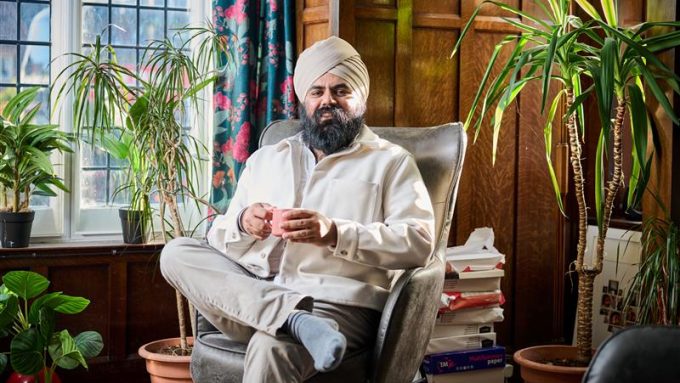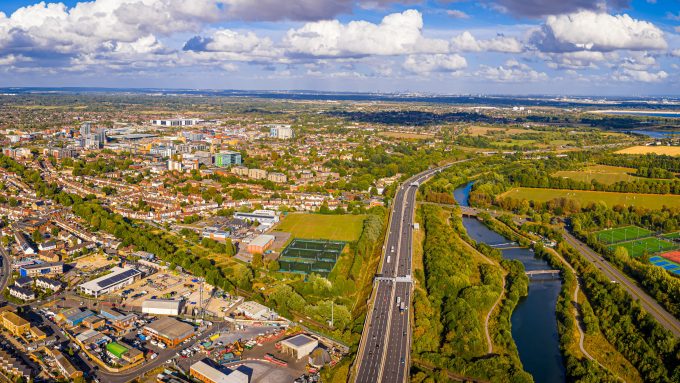
Inclusive Innovation award winner speaks of its success

“We couldn’t believe it; we all stared at each other, thinking ‘Did they just say our name?” recalls Joanne Henry, a matron from the Clinical Research Network, Greater Manchester; which won the Inclusive Innovation award, sponsored by the Catapult and announced in Manchester in March. “It took us a while to get to the stage because we were numb. It was a privilege to be there.”
Chief Operating Officer Sarah Fallon adds: “I met many nominees at the event and was so impressed with the calibre of the candidates who were shortlisted. It was amazing to have won.”
Joanne, Sarah and colleagues triumphed at the Northern Power Women ceremony for their work in taking research out to the local communities within Greater Manchester to improve health and social care access, especially for under-represented groups.
Their network began 10 years ago; funding and facilitating staff including nurses, doctors and research associates operating across NHS settings and education facilities within the region. In the last three years, this has extended to increase research in primary care, social care, and other community settings including schools and prisons. In the last year more than 65,000 people took part in studies in Greater Manchester.
“Health and social care services are stretched and research can easily be seen as an additional activity, but the situation will never improve if we don't continue to explore what care works, and what doesn’t,”NIHR Clinical Research Network Greater Manchester Chief Operating Officer Sarah Fallon
“We've got a responsibility to make sure we have research outputs that represent all communities,” she adds. “Health and social care have to continue to improve, and work for everybody – and that means making sure research involves everybody from the beginning.”
Reaching out to South Asian communities
Much of the group’s research delivery involves finding ways to prevent, treat and diagnose illness and health and care challenges. One example is a study called Genes and Health, sponsored by Queen Mary University London, which is focused on South Asian communities, who have been shown to have poorer health outcomes in the UK compared to the rest of the population.
Joanne Henry explains that this study involves taking a saliva sample from participants for analysis, and completing a short questionnaire. Researchers from across the healthcare profession can then use the biobank of samples to carry out genetic studies following approval from an ethics board. One study found that a common medication given to people who had suffered a heart attack – and to stop them having further attacks – may not be effective for half of South Asian people.
“Results from these sorts of studies is leading to changes in clinical guidelines, will change care and hopefully improve health,” she says.Joanne Henry, matron from the NIHR Clinical Research Network Greater Manchester
The team has recruited volunteers following prayer sessions at mosques, at Asian supermarkets and music festivals. “In the space of an hour and a half we recruited 85 people recently. It was the first time we proactively engaged with this community with our research, and we had such a massive and enthusiastic response.”
Sarah Fallon points out that trust built with community leaders has been key to the programme’s success. “They feel their voices are being heard and represented in the way we are delivering research.”
The team has also taken part in community events such as at Oldham library to raise awareness of different health conditions and discuss the importance of taking part in research. “At one event we brought along a GP and he saw three people who he sent to A&E because they hadn't accessed support already, and their conditions had reached a point where they needed to be seen urgently.”
Engaging the younger generation
The group has also commissioned a children’s book from a local author to raise awareness of health research and stimulate family conversations, which they are presenting at school assemblies. The group has also designed and built a mobile research van – or ‘research on wheels’ – to take healthcare research direct to communities.
“Some people may feel uncomfortable in a hospital setting or have to take several buses or trains to get to one, so the van means we can take our work out into the community,” says Sarah. “It’s just another tool to try and make sure we have better representation with our work and can deliver better care.”

After the ceremony, the first thing Sarah did was take the award home and show it to her 14 year old daughter. “She was so proud. She’s been dragged along for years to these festivals and assemblies, and we've turned up at her school. So whether she's wanted to or not, she's always been involved.”
Joanne adds that the senior leadership team at the research network is majority women and has a clear vision of what it wants to achieve, and how to empower staff to help get there. “Over the last few years, our focus has been on inclusion, and our team has become more diverse with greater representation from different minority groups,” she explains. “We're going from strength to strength.”
“What a great winner. It’s so important to include everyone in research, especially health research and their approach is innovative and inclusive. This supports people's health and leads to more fulfilling and productive lives which also supports UKs productivity and growth.”Connected Places Catapult’s Business Director for Devolved Government, Alex Cousins
“Yet again, the standard of entries was high – and what an uplifting experience to be in a room packed with strong Northern Power Women and men that make things happen and change people's lives.”
Northern Power Women’s founder Simone Roche MBE said: “It is fantastic to be able to unearth people and organisations leading the way through inclusive innovation, ultimately making society a more accessible and equitable place. Our partnership with Connected Places Catapult enables us to do just that as they are committed to empowering and amplifying innovative solutions from the North of England.”
Read more about the Northern Power Award winners
Keep up with the work of the NICR on social media - LinkedIn X (formerly Twitter)





